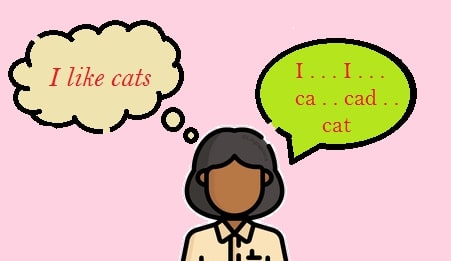Summary | Excerpt | Reviews | Beyond the Book | Read-Alikes | Genres & Themes | Author Bio

A Novel
by Jon McGregorThis article relates to Lean Fall Stand
 In Lean Fall Stand, the main character suffers a massive and debilitating stroke during a whiteout storm in Antarctica. After being rescued, he returns home to England to begin the long, arduous task of learning to speak again. The medical term for the loss of the ability to understand or express speech is aphasia. It is usually caused by a neurological insult, such as a stroke, brain injury or neurogenerative disease like dementia.
In Lean Fall Stand, the main character suffers a massive and debilitating stroke during a whiteout storm in Antarctica. After being rescued, he returns home to England to begin the long, arduous task of learning to speak again. The medical term for the loss of the ability to understand or express speech is aphasia. It is usually caused by a neurological insult, such as a stroke, brain injury or neurogenerative disease like dementia.
According to the Mayo Clinic, "The most common cause of aphasia is brain damage resulting from a stroke — the blockage or rupture of a blood vessel in the brain. Loss of blood to the brain leads to brain cell death or damage in areas that control language." With certain forms of aphasia, it is not uncommon for some people to retain their intellectual and cognitive abilities, while at the same time being unable to communicate.
How do you recognize aphasia? It is helpful to look for the following signs, as the person may:
In the United States, more than two million people are living with aphasia in one of its three forms: Broca's (also called expressive aphasia), Wernicke's (also called receptive aphasia), and global aphasia. The main character in Lean Fall Stand falls under the Broca's spectrum, as he struggles to express himself using only a few words and has difficulty finding the right words for what he is trying to convey. Sometimes called nonfluent aphasia, people with this form may understand what others say better than they can speak themselves. This struggle to communicate and find the right words for things often leads to frustration.
While people with Broca's aphasia can only speak in short sentences of a few words, those with Wernicke's aphasia are fluent, speaking long and complex sentences; however, the sentences often do not make sense and might contain incorrect, unrecognizable or unnecessary words. And while they can speak more fluently, they are less likely to understand spoken words and might be unaware that others cannot understand them.
The most severe form is global aphasia. People with global aphasia struggle with both comprehension and expression, and while those afflicted with the other two forms tend to retain some ability to read and write, those with global aphasia can do neither. This is usually caused by damage to the perisylvian cortex, which is the brain tissue dividing the frontal and temporal lobes of the brain.
How do people with aphasia recover their ability to communicate? A speech-language pathologist is usually assigned to work with a patient diagnosed with aphasia. Speech and language therapy is a necessary component to rehabilitating the brain's ability to form and identify the right words to match what a person is attempting to communicate. This is often a slow process that only rarely returns the person to their pre-injury abilities. Speech and language therapy also looks to supplement a person's communication experience, i.e., people are taught other ways of conveying information beyond words. In Lean Fall Stand, the therapy group Robert attends uses innovative ways to encourage people to tell their stories through movement and dance. This is an approach that is used in real life to successfully treat aphasia.
Broca's aphasia graphic by Pereoptic
Filed under Medicine, Science and Tech
![]() This "beyond the book article" relates to Lean Fall Stand. It originally ran in October 2021 and has been updated for the
September 2022 paperback edition.
Go to magazine.
This "beyond the book article" relates to Lean Fall Stand. It originally ran in October 2021 and has been updated for the
September 2022 paperback edition.
Go to magazine.
Children are not the people of tomorrow, but people today.
Click Here to find out who said this, as well as discovering other famous literary quotes!
Your guide toexceptional books
BookBrowse seeks out and recommends the best in contemporary fiction and nonfiction—books that not only engage and entertain but also deepen our understanding of ourselves and the world around us.